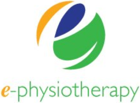Frozen shoulders generally occur between the ages of 40 and 60. The cause is not known but the capsule that surrounds the shoulder joint becomes inflamed, painful and gradually gets tighter. This stiffens the shoulder, hence reducing movement. As the condition continues, it becomes less painful, but the shoulder remains very stiff. It is thought that the stiffness eventually reduces, but this may take more than a year. Cortisone injections can help with the pain and stiffness in the earlier stages of frozen shoulder progression, called the freezing phase. Often do no completely resolve the problem. There are also operative procedures such as hydrodilatation/hydraulic arthrographic capsular distension/distension arthrography to loosen the shoulder joint capsule, which are more effective than a cortisone injection. Physiotherapy after these procedures is essential to improve joint range and strength. If you have a frozen shoulder, physiotherapy may not help without an injection or surgery, unless it has already moved from the painful and stiff stage and has started to loosen. If you are unsure if you have a frozen shoulder or not, book an appointment with e-physiotherapy Edinburgh.

